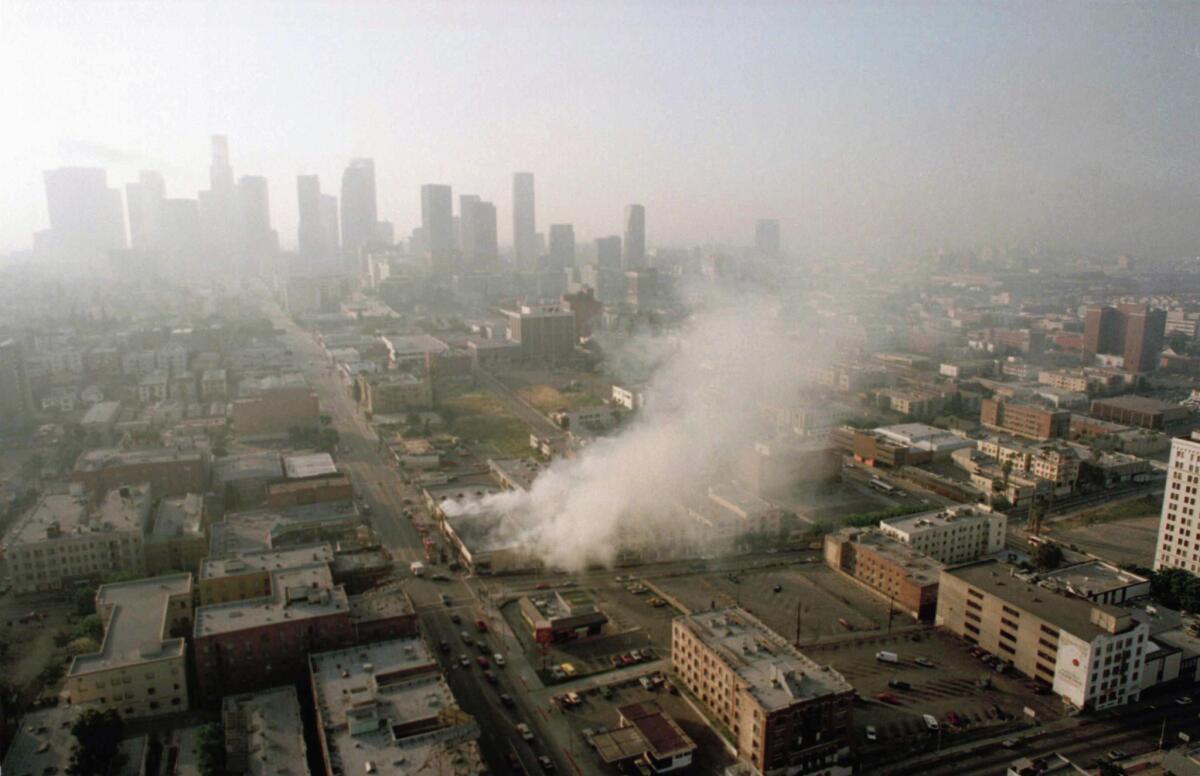The chief’s promise: The LAPD will never fail the city again

- Share via
Several years before his death, Daryl Gates and I were on a fishing trip in the Northern Sierra. He wanted to talk about the 1992 riots, and I was more than willing to listen. I had been troubled by the department’s actions before, during and after those horrific four days, and I was looking for answers. Those answers never came, at least not through that conversation. Former Chief Gates attributed the riots of 1992 to the leadership failures of just two individuals in the department; he did not view it as an organizational issue.
I very respectfully disagree with my former chief on this issue: I think the Los Angeles Police Department as an organization had everything to do with those awful days in the spring of 1992. In the preceding decade, our style of policing was aggressive, confrontational and above all, ineffective. And I was a part of it.
In the 15 years before the riots, I had worked primarily in South Los Angeles. I had been a patrol officer, a gang officer, a field sergeant and gang sergeant. I was part of Operation Hammer — the war on gangs and the war on drugs. We truly believed that we were at war and that more arrests and tougher policing was the solution to the plague of violence sweeping through the city. And make no mistake about it, the city was incredibly more violent. Murder, rape and robbery all occurred at levels three to four times greater than today.
Unfortunately, when we declare war, several things happen. We cause collateral damage, which erodes whatever moral high ground led to the declaration. Our “opponents” — now unified — possess their own moral mandate for counterattacks. This is what we did when we declared war on our own communities during the 1980s and 1990s. That is what we risk doing today, when we declare war on our own immigrant communities.
The Los Angeles Police Department as an organization had everything to do with those awful days in the spring of 1992.
But after years of trying to arrest our way out of the problem, it became obvious that our efforts only contributed to the violence. Worse yet, they alienated the policed to the point that, in retrospect, the riot was inevitable.
This realization transformed the way I thought about policing. Combined with determined leadership at all levels within city government and bolstered by a federal consent decree mandating change, it caused a seismic revolution in the way the LAPD policed and interacted with the city it protects and serves.
We now believe that there is no true safety without public trust, that serving the Constitution by protecting the rights of individuals is the ultimate goal of policing, and that relationships and partnerships are essential to policing in our city.
The LAPD and I were forever changed by the 1992 riots. Sometimes change can occur only because of crisis. It is my promise to Los Angeles that we will never forget those lessons so dearly learned and that we will never fail you again.
Charlie Beck was a sergeant in the LAPD in 1992. He was appointed chief in November 2009.
ALSO
Twenty five years later, how did the riots transform L.A.? And has the city changed enough?
How would the LAPD handle a riot today? More officers. More arrests. Better strategy
They were kids in 1992. Here’s how two Korean Americans are telling the story of the L.A. riots
More to Read
A cure for the common opinion
Get thought-provoking perspectives with our weekly newsletter.
You may occasionally receive promotional content from the Los Angeles Times.










